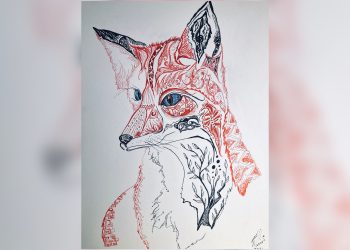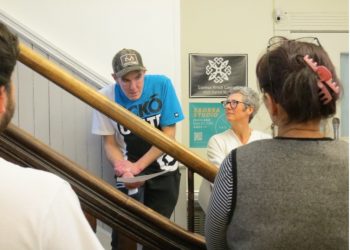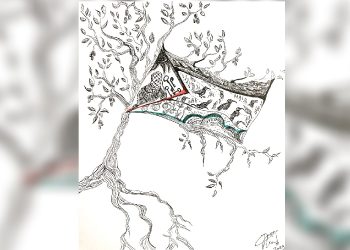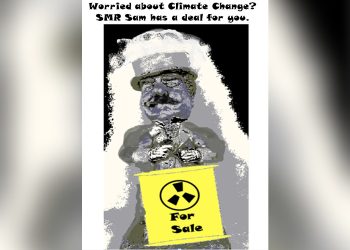Environmentalists are outraged about the damage to wildlife, fisheries and coastal eco-systems caused by the Deepwater Horizon oil rig drilling the Macondo well that blew up on April 20, 2010. They worry about the further damage caused by Hurricane Laura in the summer of 2020.
The Deepwater Horizon rig was operated by the multinational company, British Petroleum (BP). The disaster involving BP’s operations in the United States occurred around 50 miles off the Louisiana coast in the Gulf of Mexico, a diverse marine habitat. A 2014 story by Martha Harbison in Audubon, “More Than One Million Birds Died During Deepwater Horizon Disaster” describes the destruction.
The human losses included the lives of 11 workers with an additional 17 sustaining injuries. Along with human casualties, significant environmental consequences resulted from the spilled oil. Shortly after the explosion, underwater oil leaks were discovered on the sea floor. Repeated efforts to stop the leak failed; thus, oil continued to seep into the Gulf of Mexico for months. The leak was finally capped in July 2010. By then, it is estimated that between 17 and 39 million gallons of oil dispersed into the Gulf of Mexico. Approximately, 1,631 miles of coastline was impacted, including the coasts of four states: Louisiana, Mississippi, Alabama, and Florida.
According to National Geographic, the BP Deepwater Horizon oil rig explosion caused one of the worst environmental disasters in world history. Although extensively examined by researchers and ecologists, the magnitude of the environmental degradation caused by the oil spill remains unknown. A further National Geographic article in April 2020 reported that although a decade has passed, the BP oil spill continues to exert a harmful effect on wildlife—with dolphins identified as particularly vulnerable.
The poems appearing further in this article are dedicated to a small land mass off the Gulf Coast in Louisiana’s Plaquemines Parish, known as Cat Island. The island was home to an active bird rookery occupied by brown pelicans, seagulls, spoonbills, and egrets before BP’s Deepwater Horizon oil disaster. After the oil spill, the barrier island largely disappeared.
Describing the island before the oil spill, former Plaquemines Parish coastal zone manager, PJ Hahn, stated that prior to the 2010 oil spill, Cat Island was a “pristine” island with tall mangroves that often grew to eight feet. The island comprised roughly six acres of land. Hahn described it as the ideal nesting ground for migratory birds in the wintertime seeking places to nest for the spring.
According to Hahn, the small islands in a chain, including Cat Island, were situated to “greet the oil” when the spill occurred. He explained that research by US wildlife and fishery agencies documented that chicks imprinted to the islands when they were born. Consequently, they return annually to their birthplace to breed and nest again. According to Hahn’s summary, the research also shows that “when the birds come back . . . if the island is gone, they don’t go off and breed somewhere else, they just don’t breed”. He concluded “we’re losing generation after generation of birds”.
The environmental research also shows that the damage to the fragile coastal marshes was of strong concern because the marshes helped protect the state from hurricane storm surges. A study published in the spring of 2020 by researchers from Tulane University traced the catastrophic and irreversible damage to the wetlands, leaving cities like New Orleans vulnerable to further natural disasters. Researchers in Tulane’s Department of Earth and Environmental Sciences published their findings in Nature Communications, an open-access journal. They were alarmed to find that rapid sea-level rises in the region were threatening the coastal marshes that buffer storms and offer homes to bird populations.
Their research seemed to foresee the onslaught of Hurricane Laura at the end of August 2020. At its height, Laura was a Category 4 storm described as un-survivable for persons in its path. News reports list it as one of the most powerful storms to hit the region in decades. Laura brought winds that reached the strength of 150 mph. Some locations witnessed more than nine feet of storm surge.

Scientific data showing Hurricane Laura’s influence on coastal wetlands has not yet been produced. However, researchers like wetlands ecologist and professor at Loyola University, Bob Thomas, have queried whether healthy wetlands, undermined by the BP oil spill, could have buffered Hurricane Laura’s destruction. Thomas described the wetlands as “very important” as a barrier to storms. The Audubon Society, active in regional conservation efforts, is also beginning to assess the damage to wildlife and bird populations.
My poems published here honour these ecologically diverse and important coastal regions and the humans and animals that live there, in the path of environmental destruction and disaster. The poems imagine the coastal region and Cat Island in particular being restored by wrongfully convicted women, including Tammy Marquardt, who spent more than 13 years in prison in Canada after being wrongfully convicted for the death of her infant son, Kenneth.
The three poems are written from the perspective that wrongfully convicted women are particularly situated to understand habitat loss and the premature loss of young that many species experienced in intensified ways after the oil spill to the present. This is the case because the women lost their homes when imprisoned and were often denied the chance to grieve, when wrongfully imprisoned for a fatality involving their child.
1. Restoring Cat Island, Louisiana
A dream: A skiff filled with wrongfully convicted women
Arrives after the
BP Deepwater Horizion oil spill
Wearing sunglasses, steel toed
Boots, graying prison garb with
Torn, empty pockets.
Women embark on two tiny strips of sand and shell
What is left of the miles-long island
Smaller than a solitary cell
Muscled arms
Pull mangrove stumps
Into full trees with bare hands
That never bleed.
Resurrect the once teaming
Rookery, uncover withered
Spoonbills lost in bowls.
Build nests with sticks
cigarette butts, broken teeth
and pelican bills
Throw tar balls
For imaginary dogs
Chewing on ibis
Bones.
Ice their hearts
In beer coolers
Stuffed with
Eyeless fish
Drunk on Budweiser.
Jail ink and life
Sentences fade in
sub- tropical heat
no limit on yard
time.
Shovel for roots
Where coastal birds
Imprinted, returned.
Feathery offspring
born knowing freedom
Is a wingspan.
Use the booms as
Beach toys, floating
empty promises
beyond the forever
blackened sheen
Wash down oil slicked
Herons hoping for
Another chance,
Huddle in disgrace.
Praying in bird talk
For exoneration.
2. Tammy Marquardt Fumes
at British Petroleum (after the Oil Spill)
Reaches way down
Through the cell
Bars to take hold
Of an oil slicked
Pelican
Only six months off
The endangered
Species list
Swears so
Loudly
Even the
Roseate
Spoonbill
Carcasses
Blush.
3. Tammy Marquardt Becomes A Bullfighter in Plaquemines Parish, Louisiana
Strides into the ring
Matadora finery, head high
Mauve traje de luces
Sword a socerer’s
Wand transforms bull
Into a Seaside Sparrow
Flies upward,
Away,
All the while,
singing.
Tammy bows.
Crowd, hungry for
Blood, boos.
Sparrow flutters
overhead.
Tammy exits.
All the while,
Humming the
tune of the
Dead ocean.
These poems were originally published in Environmental Activism and the Maternal: Mothers and Mother Earth in Activism and Discourse, and are re-published with the permission of Demeter Press.
Josephine L. Savarese is an Associate Professor in the Department of Criminology and Criminal Justice, St. Thomas University.








![Is pollution from industry causing the neurological disease ALS in New Brunswick? [video]](https://nbmediacoop.org/wp-content/uploads/2025/10/Quintin-Soloviev-Belledune_Generating_Station_in_New_Brunswick_Canada-120x86.jpg)

